A Nigerian With Dual Citizenship Can Contest For Any Election In Nigeria. Daily Law Tips (Tip 650) by Onyekachi Umah, Esq., LL.M, ACIArb(UK)
It is common to find Nigerians with dual and multiple citizenship (dual nationality). There are deep misconceptions about the eligibility of such persons to contest for elections or be appointed to political offices in Nigeria. At some point, some persons have been unlawfully and ignorantly led/forced and cajoled to deny their dual citizenship. So the salient questions are; Are persons with dual citizenship prohibited from contesting for any election in Nigeria? Can the President of Nigeria have dual citizenship? These and more questions will be examined and answered in this work, using case laws and the Constitution of Nigeria.
The greatest of all laws in Nigeria, is the Constitution of the Federal Republic of Nigeria. It is greater than all other national, regional or international laws, conventions and treaties. The constitution has a chapter containing 8 sections dedicated to issues of citizenship.
Specifically, section 28 of the constitution of Nigeria is on issues of dual citizenship. Also, many other sections in the constitution, make reference to citizenship and made citizenship a condition to certain rights and privileges. For example, some fundamental human rights are only open and accessible to Nigeria citizens (like, the Right to Private and Family Life, the Right to Freedom of Movement, the Right to Freedom From Discrimination and the Right to Acquire and Own Immovable Property. Also, elections to any office in Nigeria, is only open to Nigerian citizens.
To understand the impact of dual citizenship on eligibility of Nigerians to contest for elections, one must critically examine the constitution of Nigeria. In the interpretation of the constitution, the first and easiest approach is to read the constitution in whole and in its plain language. It is dangerous to read any section or part of the constitution in isolation. The resultant danger will be shown below.
Among the sections of the constitution of Nigeria, that make reference to section 28 of the Constitution (ie, relating to Dual Citizenship) are sections relating to disqualification/requirements for persons to be elected into offices in federal and state levels. The specific sections, are:
- Section 66 of the constitution which is on disqualification/requirement for election into National Assembly (the House of Representatives and the Senate)
- Section 107 of the constitution which is on disqualification/requirement for election into the House of Assembly in any state in Nigeria.
- Section 137 of the constitution which is on disqualification/requirement for election of the President of Nigeria and section 142 for Vice-President of Nigeria
- Section 182 of the constitution which is on disqualification/requirement for election of the Governors and section 187 for Deputy-Governors in states in Nigeria.
All the above sections make citizenship a requirement for any person to be elected into legislative or executive office in Nigeria. The sections of the constitution cited above refer readers back to section 28 of the constitution. So the strength of those sections is founded on section 28. At this point there is need to examine section 28 of the constitution.
Section 28 of the constitution of Nigeria, clearly provides that a person that is a Nigerian citizenship by birth can have dual citizenship and be a citizen of another country. However, a person that is a Nigerian citizen by naturalization or registration and also a citizen of another country not by birth, automatically losses his Nigerian citizenship. The key determinant here is citizenship by birth. A person that is a citizen of Nigeria by birth can afford to have another citizenship from another country (even countries) and that does not affect his/her citizenship or his/her right to vote or be voted for in any election in Nigeria.
Even the appellate courts in Nigeria, have emphasized on this in the following words;
- “… it is clear and I hereby hold that the acquisition of dual citizenship by a Nigerian per say is not a ground for disqualification for election to the National Assembly particularly where the Nigerian citizen is a citizen by birth. That is the clear meaning of the provisions in sections 66(1) and 28 of the 1999 constitution when taken together. The only Nigerian citizen disqualified by the said sections is one who is a citizen of Nigeria by either registration or naturalization who subsequently acquires the citizenship of another country in addition to his Nigerian citizenship…” Onnoghen JCA (later, Chief Justice pf Nigeria) JSC) in the Case of WILLIE OGEBIDE V. MR. ARIGBE OSULA (2004) 12 NWLR Part 886 page 138 paras C-E.
- “… when a Nigerian by Naturalisation or Registration acquires the citizenship of another country he loses his right as a naturalized Nigeria. Such a person would not be able to contest any election into any elative office in Nigeria. However, a Nigerian by birth who thereafter acquires the citizenship of another country i.e. America as in the instant case does not lose his right to vie for any elective office in Nigeria being a citizen by birth and not by naturalization or registration.” Per, MUDASHIRU NASIRU ONIYANGI ,J.C.A ( Pp. 18-23, paras. F-A ) in the case of LABOUR PARTY & ORS v. ISHOLA & ORS (2014) LPELR-24386(CA)
Hence, dual citizenship cannot prevent any Nigerian citizen by birth from voting or being voted into any elective position or being appointed into any position or office in Nigeria. However, dual citizenship will prevent any person that became a Nigerian citizen by registration or naturalization from being elected into any elective position in Nigeria. Citizenship by birth is ultimate and superior to any other form of citizenship and there is not limitation to it. Click to read earlier works on citizenship in Nigeria.
References :
- Sections 1, 25, 26, 27, 28, 37, 41, 42, 43, 66(1), 107 (1), 137 (1), 142(2), 182 (1), 187(2), 318 and 319 of the Constitution of Nigeria, 1999.
- The judgment of the Court of Appeal in the case of Dr. Willie Ogebide v. Mr. Arigbe Osula (2004) 12 NWLR Part 886 page 138 paras C-E.
- The judgment of the Court of Appeal in the case of LABOUR PARTY & ORS v. ISHOLA & ORS (2014) LPELR-24386(CA)
#SabiLaw
#DailyLawTips
#SabiBusinessLaw
#SabiElectionLaws
#SabiHumanRights
#SabiLawOnBeatFm
#SabiLawLectureSeries
#CriminalJusticeMonday
#SabiLawVideoChallenge
Feel free to reach the author, ask questions or make inquiries on this topic or any other legal issues via onyekachi.umah@gmail.com or +2348037665878.
****************************************************************************************
This work is published under the free legal awareness project of Sabi Law Foundation (www.SabiLaw.org) funded by the law firm of Bezaleel Chambers International (www.BezaleelChambers.com). The writer was not paid or charged any publishing fee. You too can support the legal awareness projects and programs of Sabi Law Foundation by donating to us. Donate here and get our unique appreciation certificate or memento.
DISCLAIMER:
This publication is not a piece of legal advice. The opinion expressed in this publication is that of the author(s) and not necessarily the opinion of our organisation, staff and partners.
PROJECTS:
🛒 Take short courses, get samples/precedents and learn your rights at www.SabiLaw.org
🎯 Publish your legal articles for FREE by sending to: eve@sabilaw.org
🎁 Receive our free Daily Law Tips & other publications via our website and social media accounts or join our free whatsapp group: Daily Law Tips Group 6
KEEP IN TOUCH:
Get updates on all the free legal awareness projects of Sabi Law (#SabiLaw) and its partners, via:
YouTube: SabiLaw
Twitter: @Sabi_Law
Facebook page: SabiLaw
Instagram: @SabiLaw.org_
WhatsApp Group: Free Daily Law Tips Group 6
Telegram Group: Free Daily Law Tips Group
Facebook group: SabiLaw
Email: lisa@sabilaw.org
Website: www.SabiLaw.org
ABOUT US & OUR PARTNERS:
This publication is the initiative of the Sabi Law Foundation (www.SabiLaw.org) funded by the law firm of Bezaleel Chambers International (www.BezaleelChambers.com). Sabi Law Foundation is a Not-For-Profit and Non-Governmental Legal Awareness Organization based in Nigeria. It is the first of its kind and has been promoting free legal awareness since 2010.
DONATION & SPONSORSHIP:
As a registered not-for-profit and non-governmental organisation, Sabi Law Foundation relies on donations and sponsorships to promote free legal awareness across Nigeria and the world. With a vast followership across the globe, your donations will assist us to increase legal awareness, improve access to justice, reduce common legal disputes and crimes in Nigeria. Make your donations to us here or contact us for sponsorship and partnership, via: lisa@SabiLaw.org or +234 903 913 1200.
**********************************************************************************












































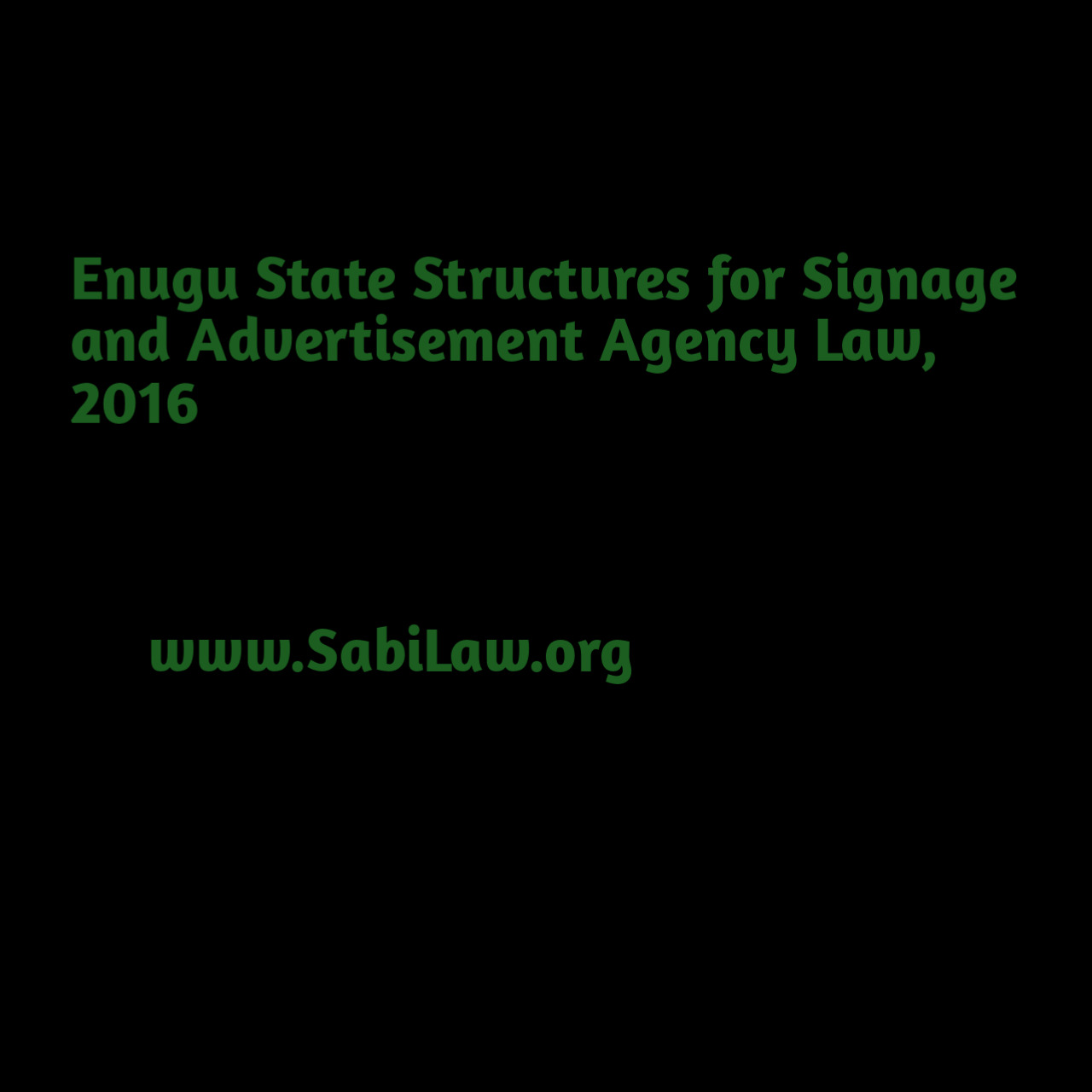
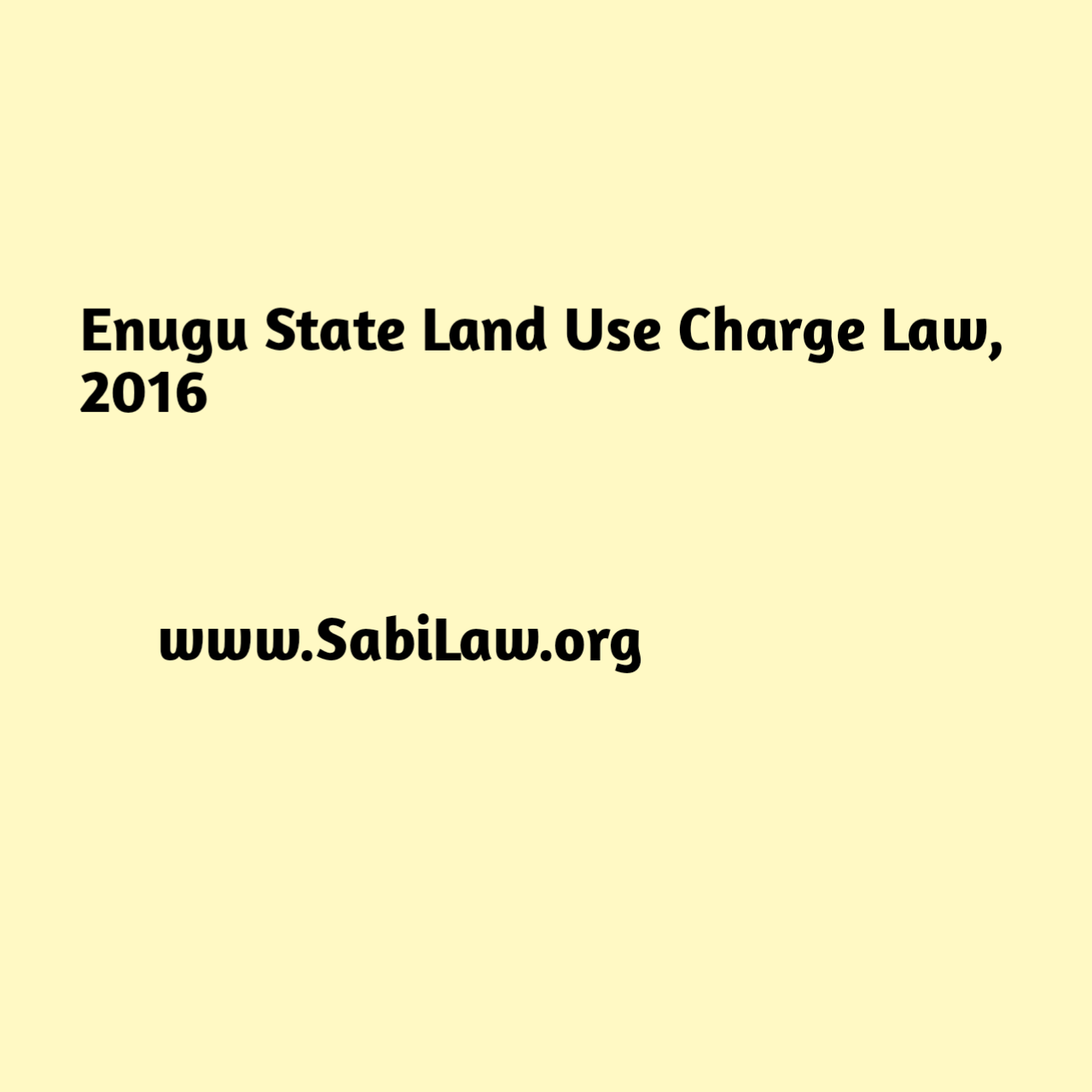
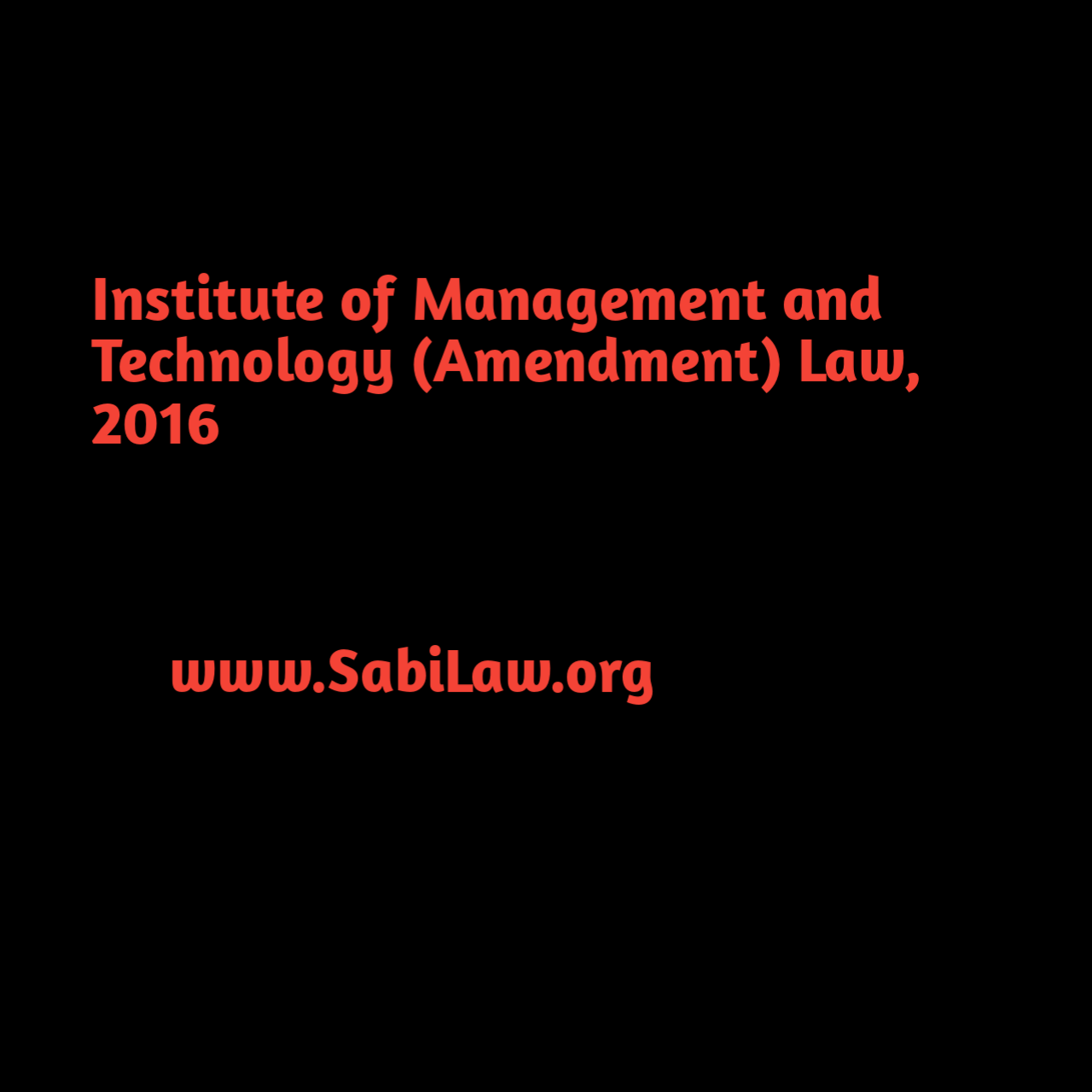
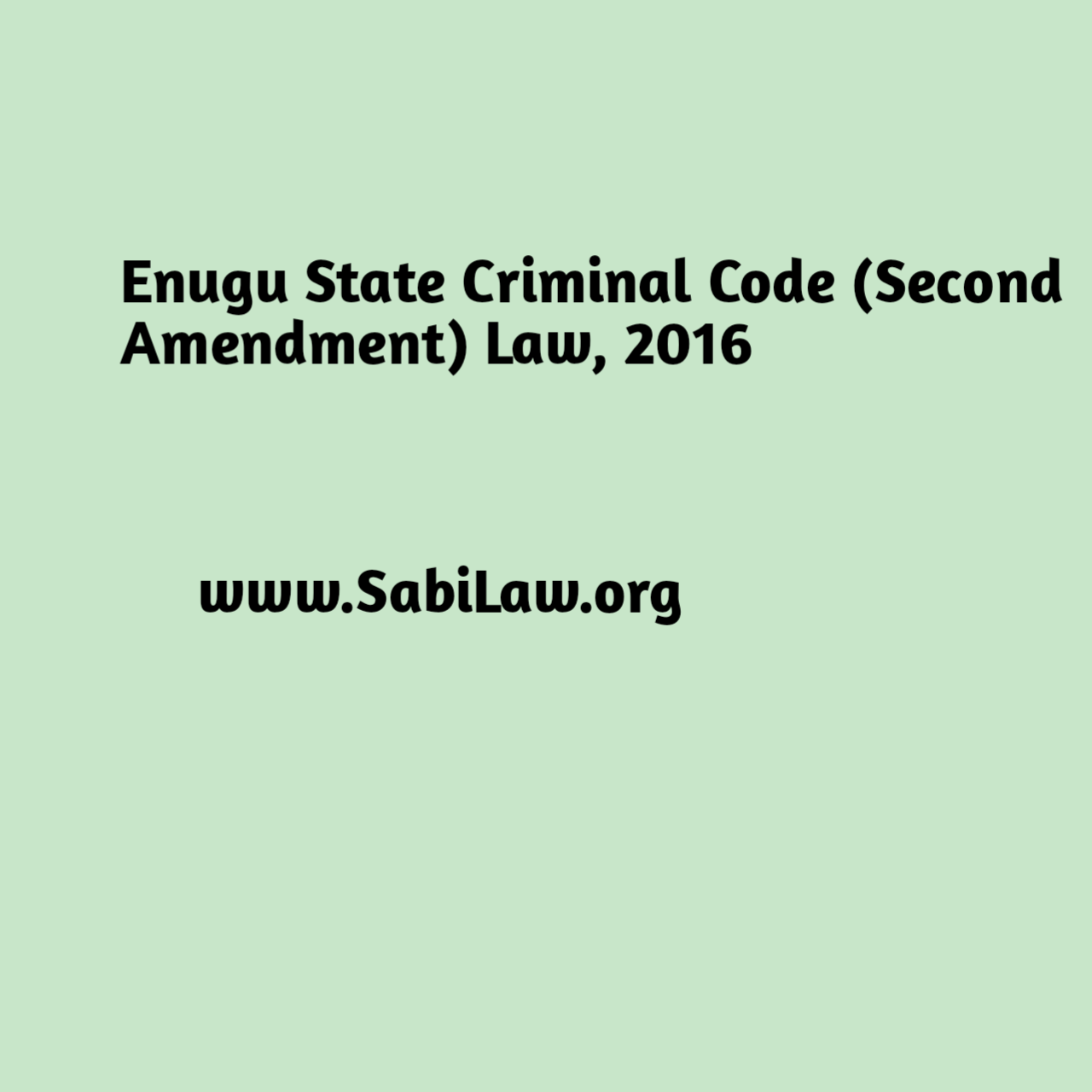
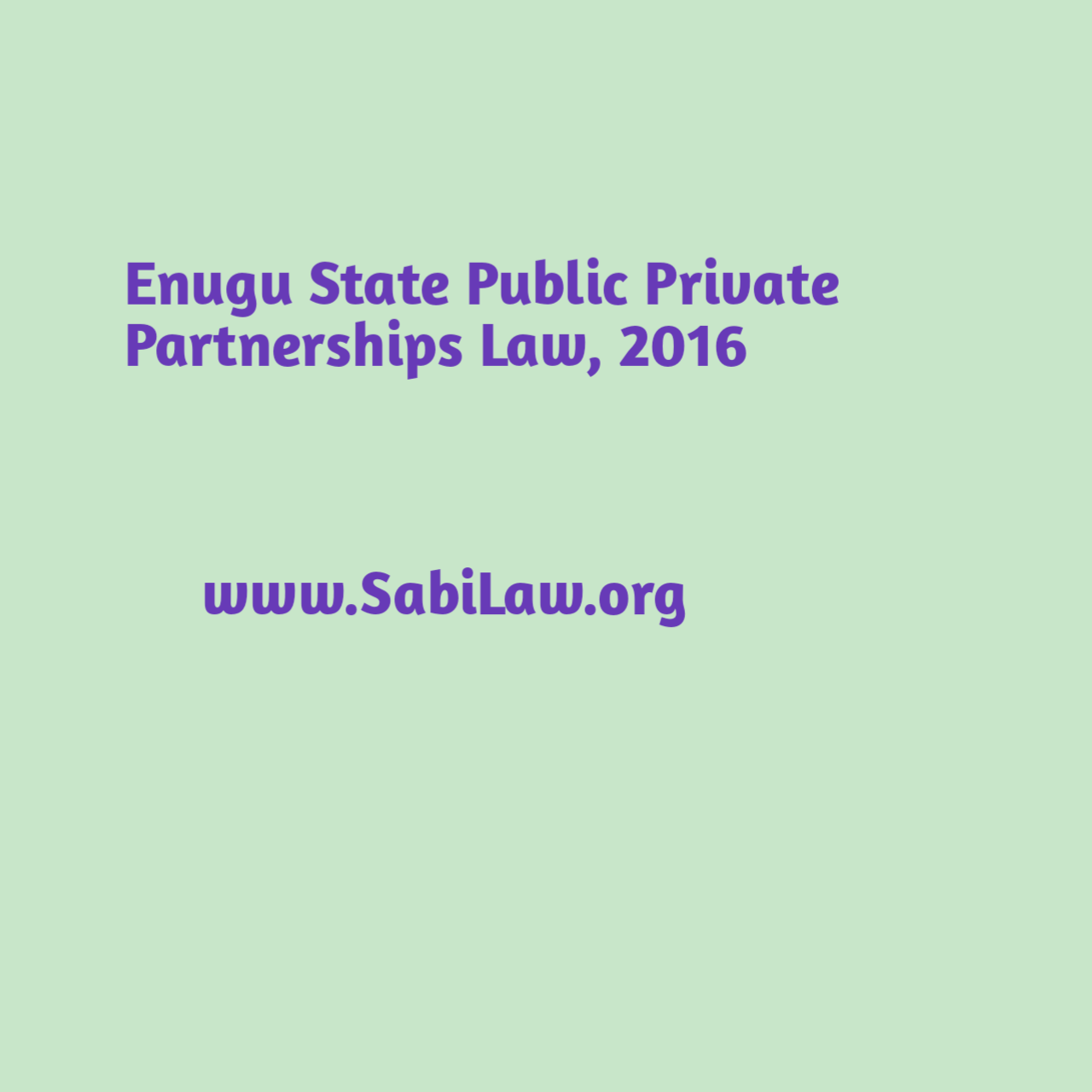
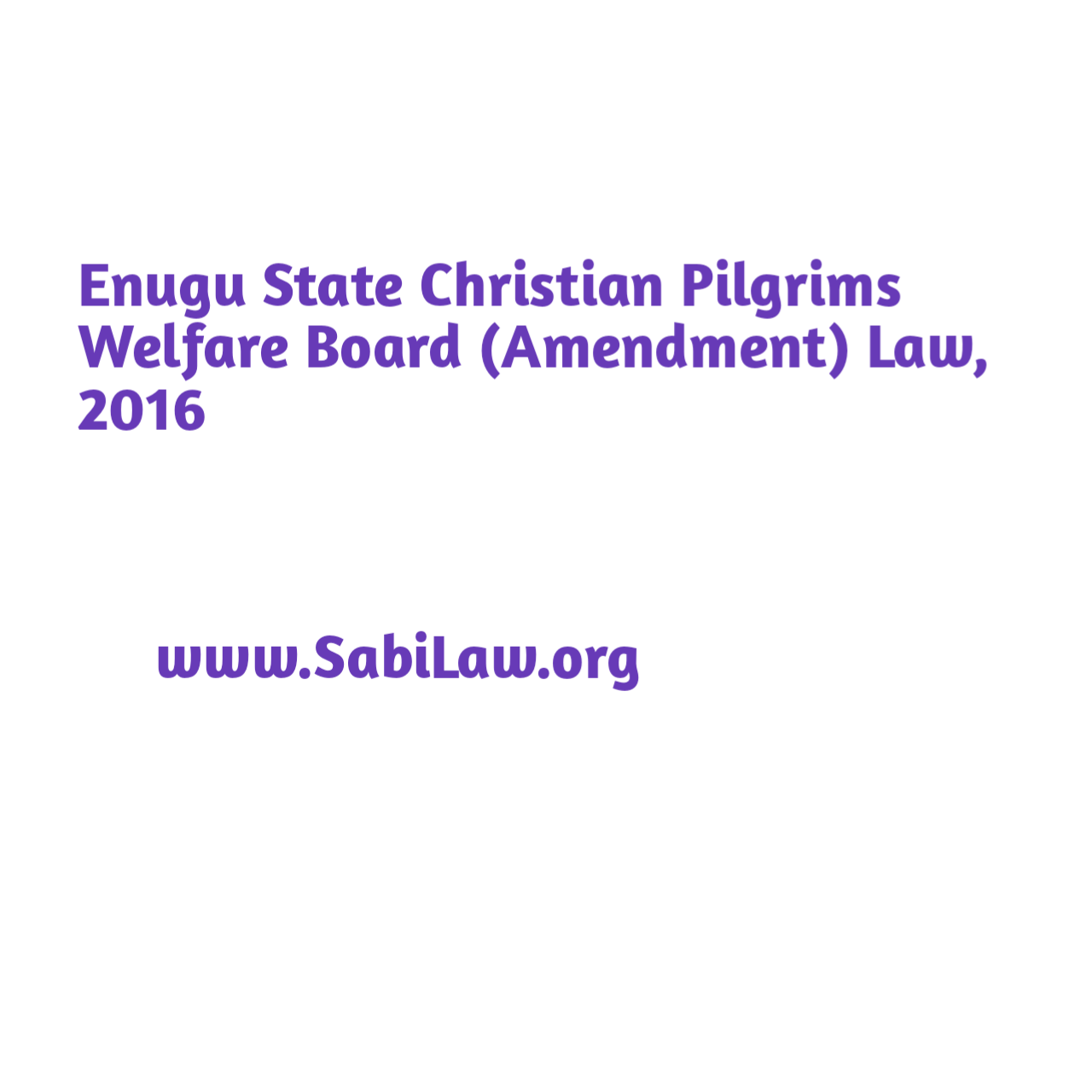
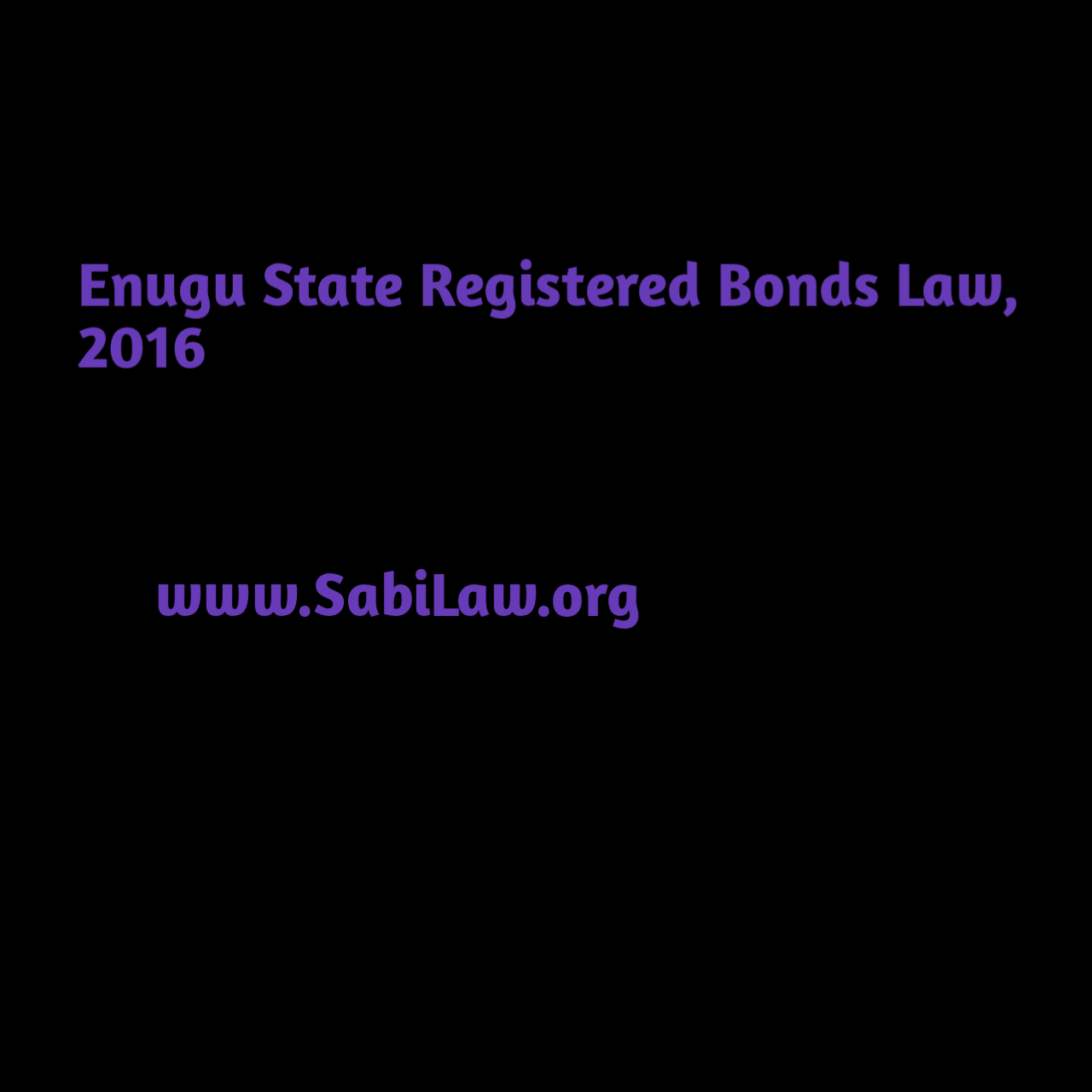
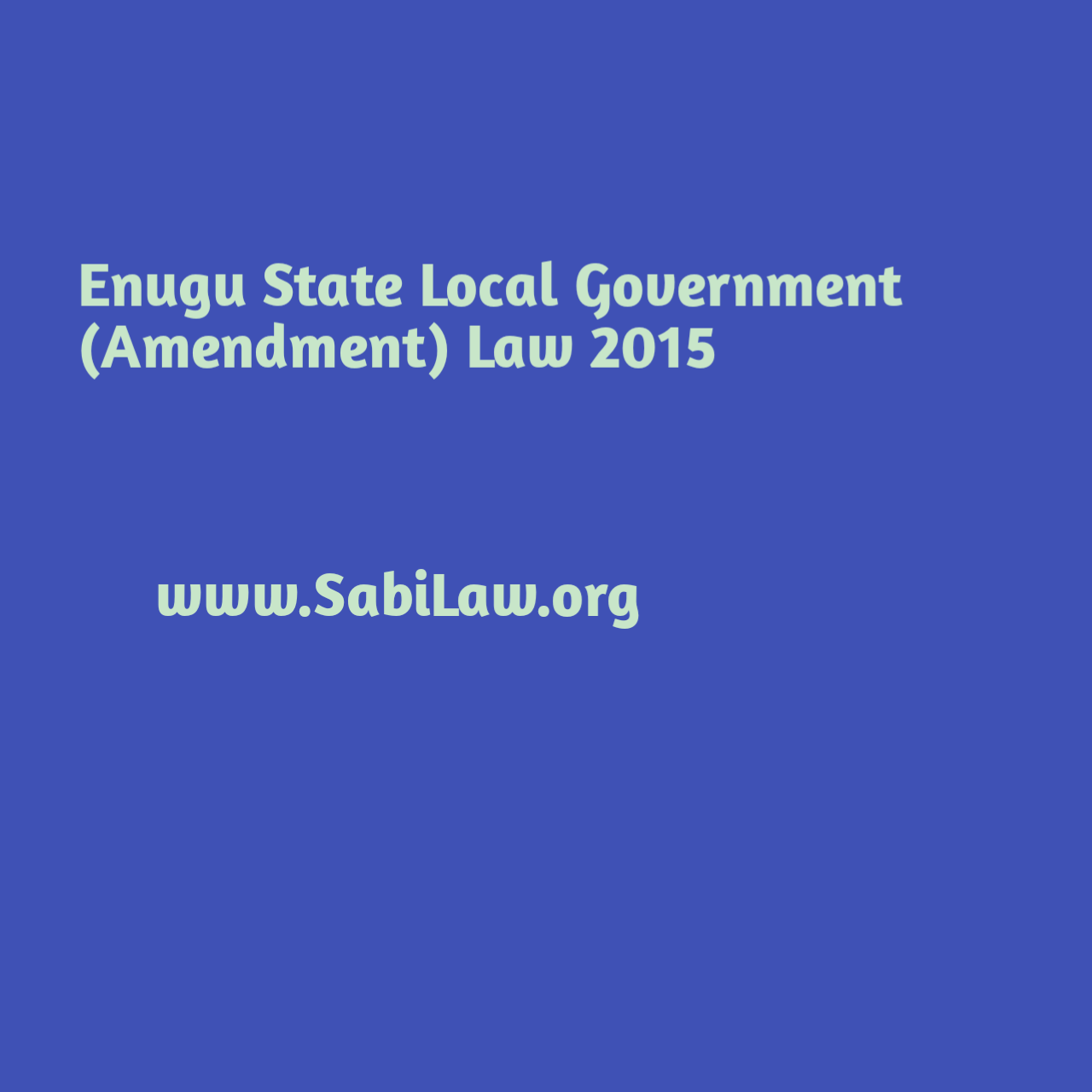
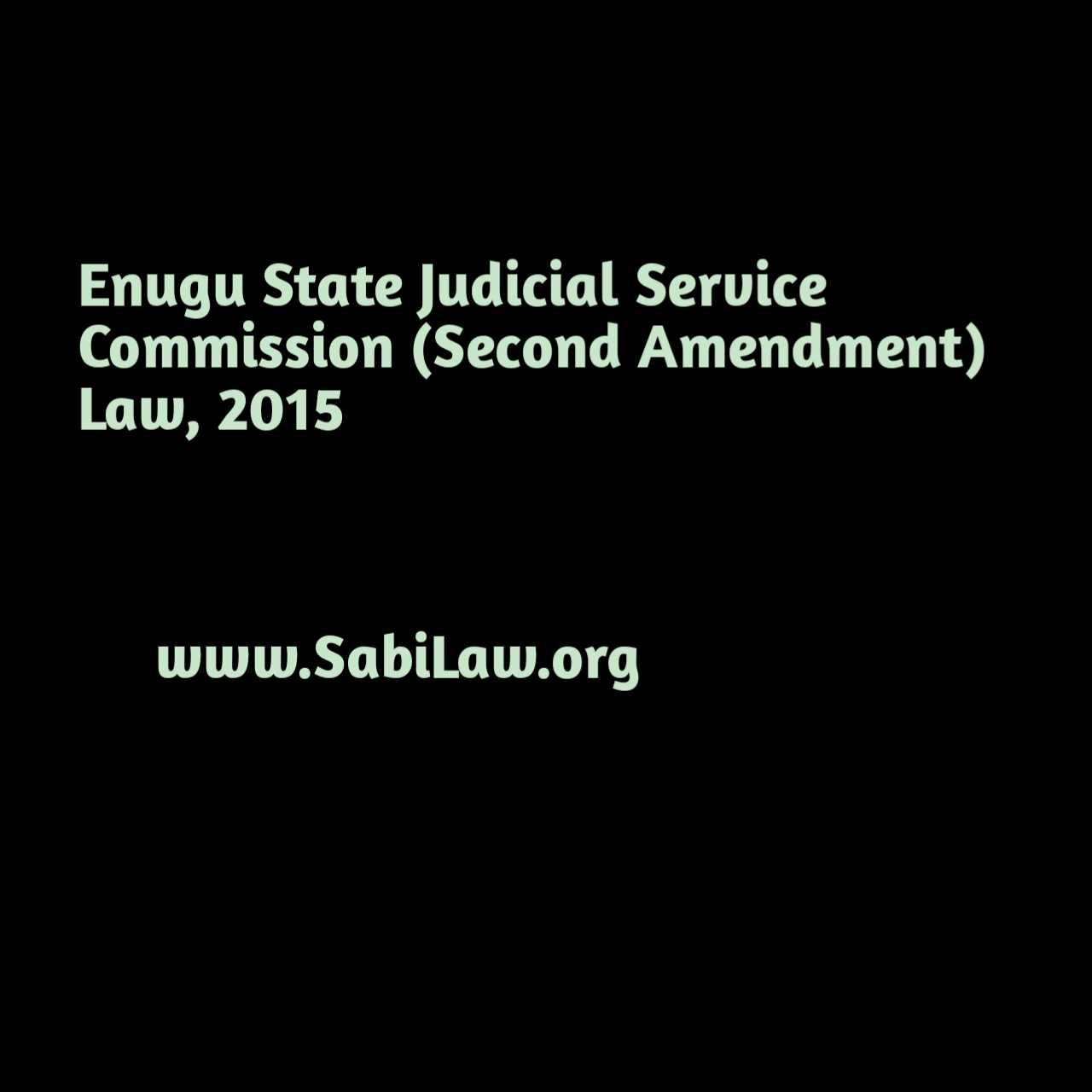
One Response